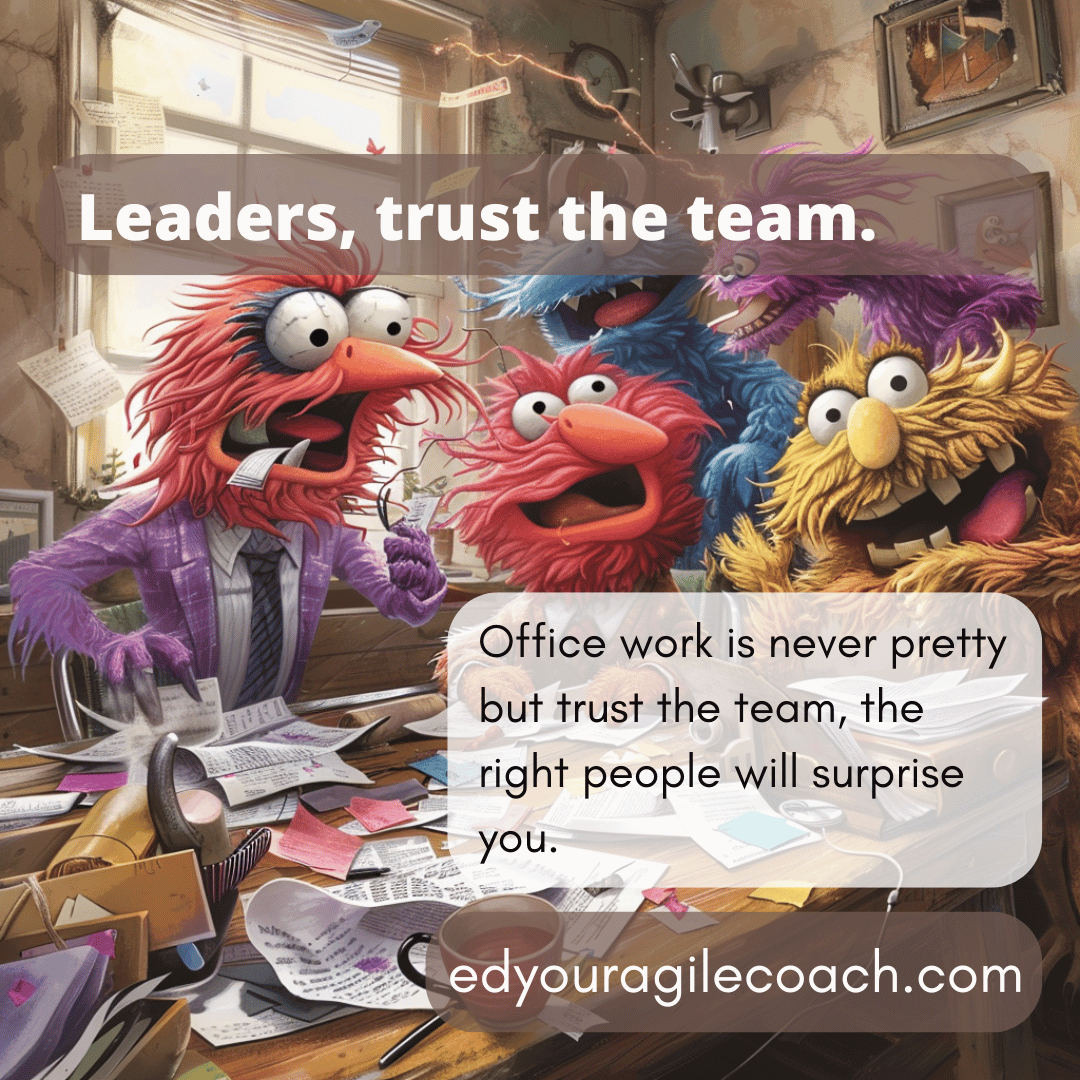When it goes sideways, trust the team.

Years of experience have transformed me into a pessimist in leading projects. I experienced disappointment and deception numerous times, and now I begin many projects with the awareness that something will go wrong at the worst possible moment. Project people tend to be control freaks because they are often singled out for blame when things go wrong. A good project professional understands that documentation can mean the difference between a lousy day and unemployment. I know this contradicts the agile value of working software over comprehensive documentation. Still, in the business world, few people want a lack of paperwork to be why they cannot feed their families. During the week, we encountered a situation that reminded me of the importance of my team and why working software matters.
My new role requires me to work early in the morning with European teams. The time difference is about eight hours, and I start my day like a morning show DJ while my overseas colleagues are looking to wrap up their meetings and go home. It is a fun dynamic, and we get along well, but if someone in the United States expects answers from the team in Europe when it is the afternoon, they must wait until the following morning.
We had wrapped up a sprint and done all the necessary paperwork. We closed out the tickets in the work item tracking system. We made the customers fill out surveys and scheduled retrospectives. We verified that all required fields were completed on the paperwork. Everything was going great until we received a panicked email from the customer.
The software we exhaustively documented was not working. I was pondering, hyperventilating, and sitting in a fetal position, but I suspected it was either a configuration error or the customer needed some attention. I gathered the development team and got on a video call. It was a European holiday, and before 5 AM in the United States. With no fuss, we fixed the customers' problems and provided them with additional tweaks for a product demonstration. When we finished, we thanked each other and logged off the call.
A few lessons occurred to me from this experience. There is no better thing than trained, experienced professionals with a sense of craft. A problem cropped up, and people who knew how to fix it got together and fixed it. Next, communication is paramount. When someone is experiencing technical issues, the last thing they need is silence. Even if it is basic troubleshooting, it is easier for the customer if someone is on the phone or via chat to help them go through the steps. Finally, get out of the team's way and let them do the work. Be present and available, but you help by acting as a shield for the team.
We did everything technically correct to close the project but missed a small setting and did not have working software. Fortunately, we pulled together and delighted the customer when things went sideways. Working alongside such intelligent and dedicated professionals is both incredibly inspiring and humbling. It reminds me that no matter the box-checking level, trust is required when things are up to you and your team to perform when things go sideways.
I am still a pessimist in project management, but the teams I work with make my pessimism less severe.
Until next time.




Comments ()